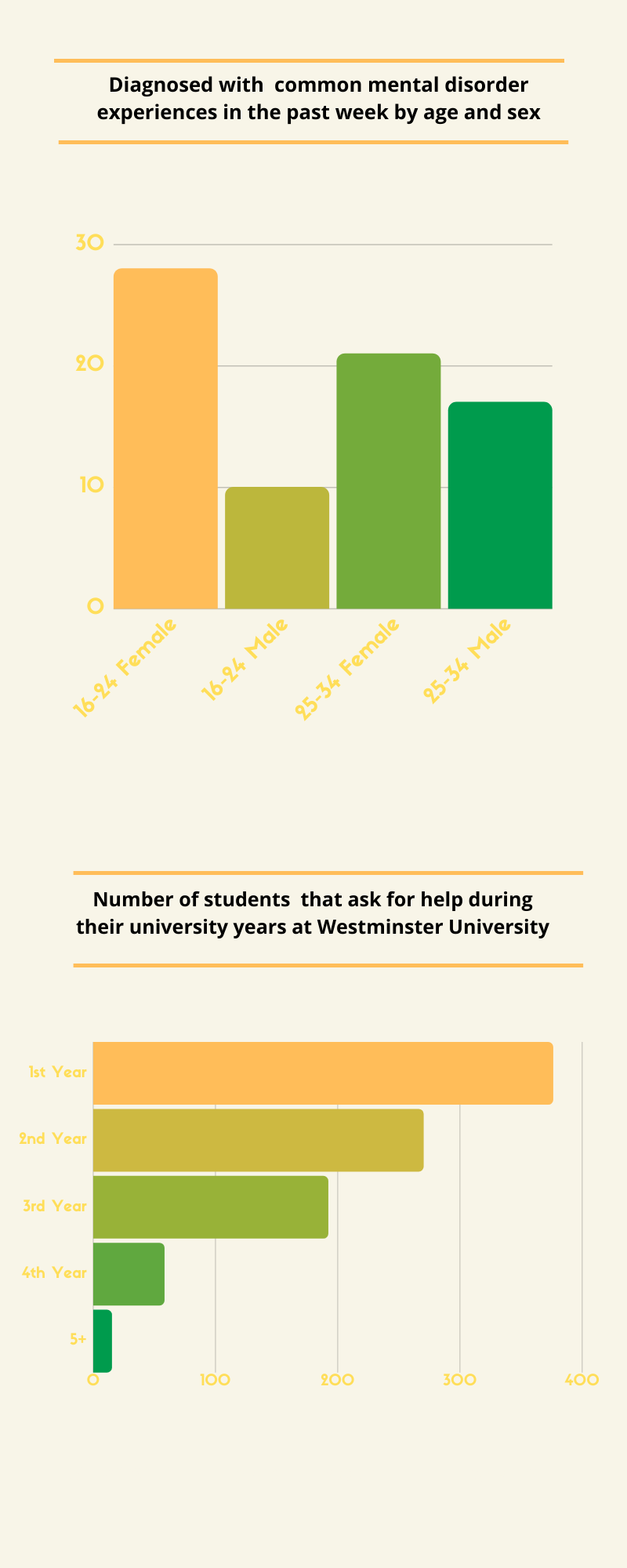Research commissioned by UniHealth suggests that 82 per cent of students experience stress or anxiety.
The study, commissioned by the Education Policy Institute, had a survey pool of one thousand students.
Their findings show that the rate of university student suicides has risen over the last 10 years, making mental health one of the main topics of focus in higher education.
The Studies
An American study, that interviewed people diagnosed with mental health conditions, asked them at what age their condition started. Results showed that 50 per cent of mental health problems had developed before the age of 14, and 75 per cent developed by the time participants were 24 years old.
Stats suggested that 64 per cent of the student population are between 16 and 24 years old, making them particularly vulnerable to mental illness. Data from the Adult Psychiatric Morbidity Survey states that today’s young generation is more exposed to mental illness disorders than it was before. This includes the stress of financial debt from student loans, increased tuition fees and the potentially negative exposure of the young generation to digital and social media.
The drop-out rates among students have gone up again. Statistics released by the Higher Education Statistics Agency suggests students drop-outs from universities are increasing each year. In fact, the study suggested that in 2016/17 6.3 per cent of students in England that enrol for the first year did not complete the course.

Infographic by Mental Health and Wellbeing in England and Giulia Frau
The Expert Opinion
Counselling Manager at the University of Westminster Viju Patel stated that more than 300 students during their first-year experience stress and anxiety compared to 270 second-year students and 192 third-year students.
These numbers only show students that reach out for support, yet, most students still “struggle to ask for help- either they feel too embarrassed, or for whom counselling may be a stigma, or don’t know where to go for help” explained Viju.
The report commissioned by UniHealth suggested that only 25% of students would seek for help. According to the in- house student counsellor Viju Patel, overlooked or untreated stress-related issues can have a major impact on the individual in several ways- including underperformance at work or university, affect relationships, mood and general ability to cope with day to day life.
A large number students at the Westminster University, choose to seek professional help because they experience anxiety or stress about their studies, they worry about their underachievement (often about not getting a degree classification of 2:1 or above), career prospect and the future. Furthermore, they are concerned about when or if they will get a job about repaying the student debt and about relationship and family expectations.
Viju continued, “concerns also focus on development tasks which need to be negotiated as young adulthood- leaving home, being independent, developing one’s own identity and beliefs, having relationships etc.”
For students enrolled at the University of Westminster, counsellor Viju Patel reported some of the services that the university provide for students in need:
- Individual and group counselling
- Mental health advice and support
- Workshop including on managing exam stress
- Self-help resources and signposting to other sources of help both within and outside the university.
Other Universities
Many universities have already increased investments in counselling services for students and mental illness awareness. University Minister Chris Skidmore stated that “the second pace in my STEP approach is all about ensuring students have the best experience possible while in higher education” he added that “student mental health is a top priority for me and from my regular visits to our universities across the country, I know this is an issues that they are taking seriously too.”
Words: Giulia Frau | Images: Unsplash | Infographic: Mental Health and Wellbeing in England and Giulia Frau | Subbing: Michelle Del Rey

